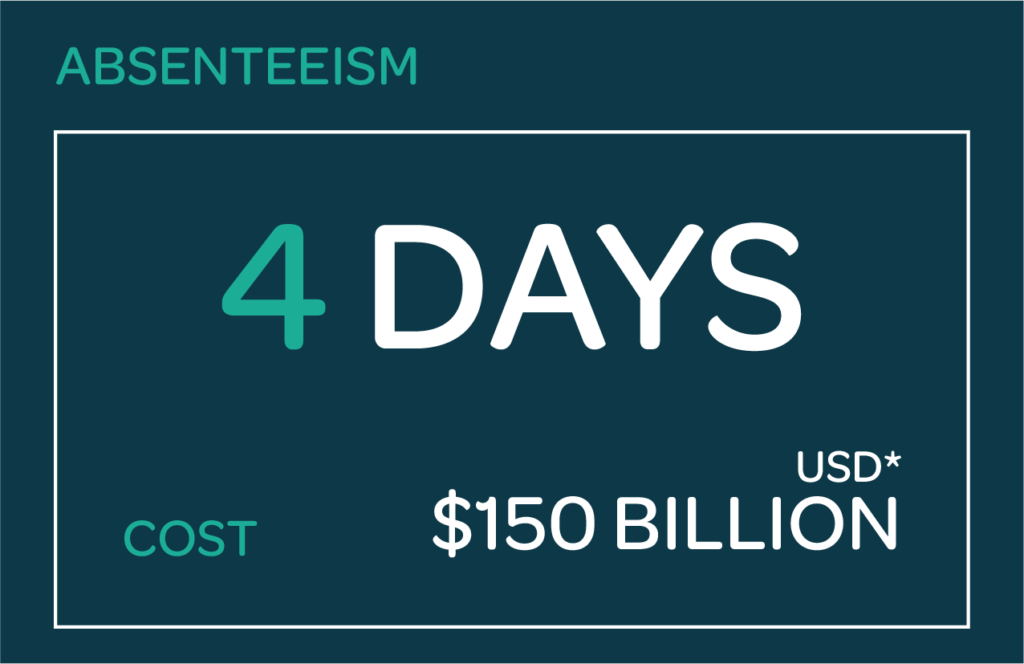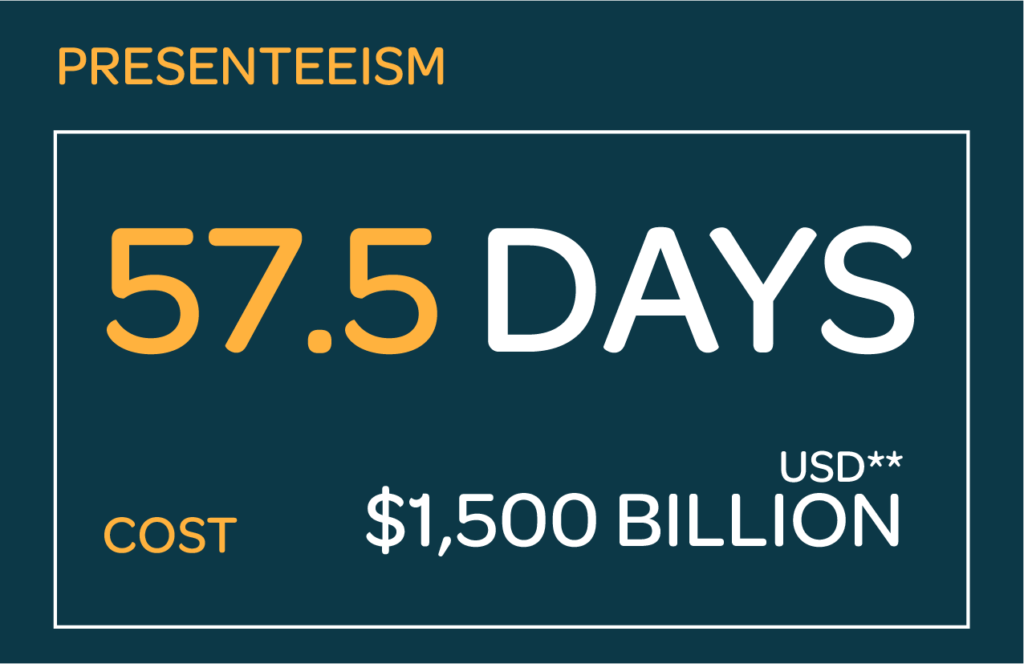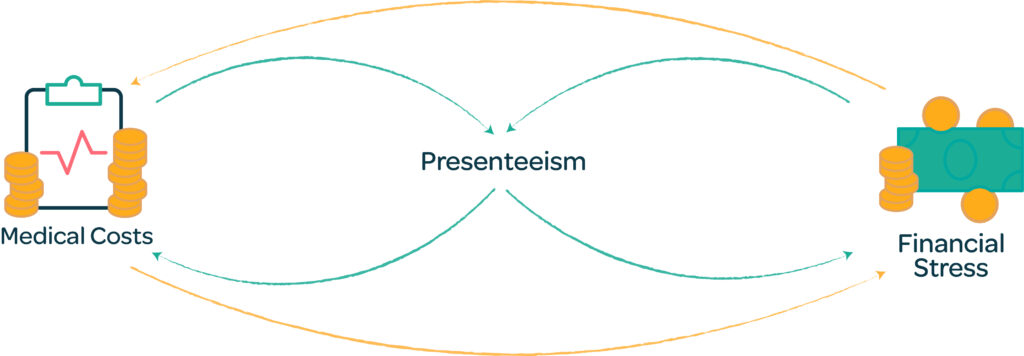The Relationship Between Presenteeism, Financial Stress, and Medical Costs
Defining the Presenteeism
Have you ever gone to work but been too overwhelmed or distracted by other things going on in your life to really cross things off your to-do list? Have you noticed fellow employees – whether your supervisors, colleagues, or direct reports – showing up, but not really showing up? Who hasn’t? This all-too-common experience is called presenteeism.1
This 2004 Harvard Business Review (HBR) study clarified that presenteeism, as defined by researchers, isn’t about malingering (pretending to be ill to avoid work duties) or goofing off on the job. The term refers to productivity loss resulting from real mental or physical health problems.
Investopedia further defines presenteeism as a “loss of workplace productivity resulting from employee health problems and/or personal issues. Even though the employee is physically present at work, because they are experiencing problems such as arthritis, allergies, family illness or stress, they are unable to fully perform their work duties and are more likely to make mistakes in the work they do perform.”2
Challenges You Take to Work
Everyone faces challenges, and we cannot be naïve to the fact that people often bring their life challenges to work. Unfortunately, low-grade mental and physical health life challenges often go overlooked by supervisors and coworkers until they become a “crisis” – it’s nearly impossible to distinguish between employees maximizing their productivity versus those who are dealing with life challenges and are unable to be productive while at work. Yet these are situations that if not addressed adequately, become worse over time, ultimately requiring time off or medical care.
The Journal of the American Medical Association published two studies that found that presenteeism due to depression and pain costs companies around 3 times more than the absence-related productivity loss for these same conditions.
But presenteeism doesn’t just cost companies lost productivity. It appears that presenteeism costs companies at least 2-3 times more than they spend on direct medical care (that companies pay through insurance premiums and/or employee claims).
When compared to absenteeism, Virgin Pulse found that absenteeism costs companies $150 billion per year, where presenteeism costs companies $1.5 trillion per year.


The same HBR study suggests that in times of increased financial stress, like the world is experiencing during COVID-19, presenteeism also increases.
This is a cyclical relationship that can lead to a downward spiral of increased presenteeism creating situations where managers need to step in and address the problem, potentially causing more financial stress – which research suggests leads to more presenteeism.
Further, when employees incur more medical costs (due to physical and/or mental health crises), this will likely increase financial stress, thereby increasing presenteeism.

Do you see the problem?
Fortunately with proper communication, planning, and the right resources, leaders can effectively balance business needs with your team’s health and well-being. If your team doesn’t feel like you are aware or paying attention to their personal needs, that can decrease their overall job dissatisfaction and increase presenteeism, however, the reverse also holds true: if you communicate that you are aware of their personal needs, your team will flourish.
Offering strategic benefits to your employees that address the relevant stressors in their lives both inside and outside of work may be one of the most effective ways to combat presenteeism, while also increasing work satisfaction and furthering your company’s culture.
At LifeGuides, we aim to help you help your people navigate through their day-to-day stressors by providing a place of empathy, listening, caring, and support. Our peer-to-peer support network includes unlimited access to Guides who have experienced the same life challenges you and your people are facing, along with an online community, text & chat support, and unlimited personalized content. We provide judgement free guidance, confidential support, and a customized road map to help your people conquer their challenges, improve their resilience, and be more focused and productive at work.
Begin the journey to create a Culture of Caring, and you will likely see improved performance, job satisfaction, and feel a deep sense of fulfillment from being a caring and innovative leader.
LifeGuides fills a massive hole in corporate well-being programs by proactively providing peer-to-peer support for employees going through daily stresses and big life challenges, preventing them turning into mental health issues and illness causing loss of productivity, presenteeism and absenteeism.
By Dan Kline – Director, Client Experience at LifeGuides (Executive Team)
Sources:
1 https://hbr.org/2004/10/presenteeism-at-work-but-out-of-it
2 https://www.investopedia.com/terms/p/presenteeism.asp
3 https://hbr.org/2004/10/presenteeism-at-work-but-out-of-it
4 Virgin Pulse


